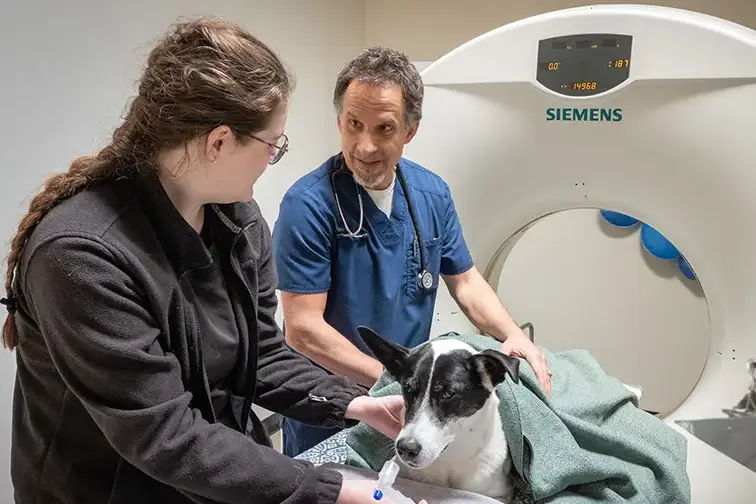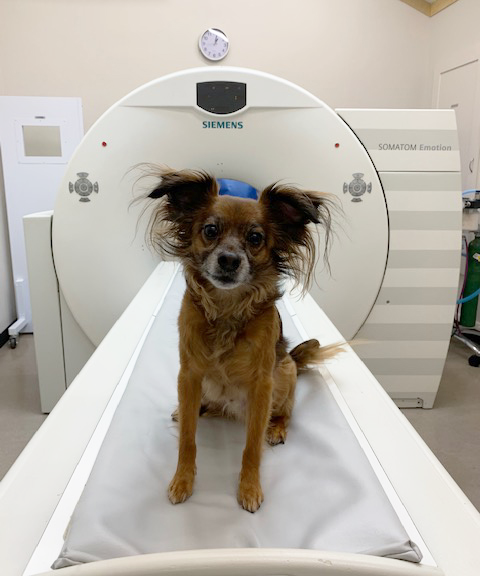

• CT scan for pets is one of the best tools for studying the chest and abdomen because it provides detailed, cross-sectional views of all tissue types. The CT scan provides excellent detail of the internal anatomy and much more information than a simple radiograph.
• CT scans in pets are often the preferred method for assessing many different cancers. The images allow the veterinarian to confirm the presence of a tumor and measure its size, precise location, and extent of involvement with other nearby tissue.
• A CT scan in your pet will help plan and facilitate the surgical approach and minimize surgery time, especially important for liver and pulmonary tumors.
• A CT scan is a vital tool for understanding the extent of canine and feline cancers and planning for treatment.
• A CT scan of your pet also helps veterinarians understand orthopedic abnormalities (such as elbow dysplasia and bone deformities) and plan for corrective procedures.
• CT scans in dogs and cats are also invaluable in diagnosing and treating spinal problems and injuries to the skeletal structures. It can clearly show even tiny bones as well as surrounding tissues such as muscle and blood vessels.
• CT scans for pets are nearly identical in their use to those done for humans. The equipment, including the machine, is mostly the same as for humans. The only difference in procedure is that most pets require brief anesthesia to keep them completely still throughout the imaging procedure.


